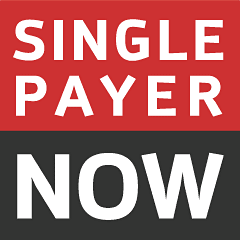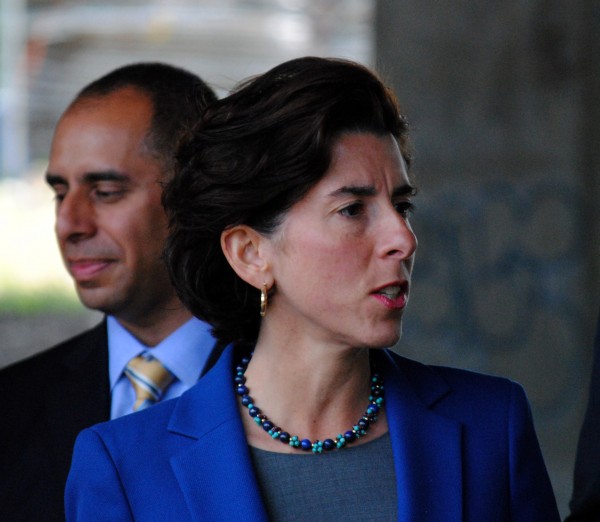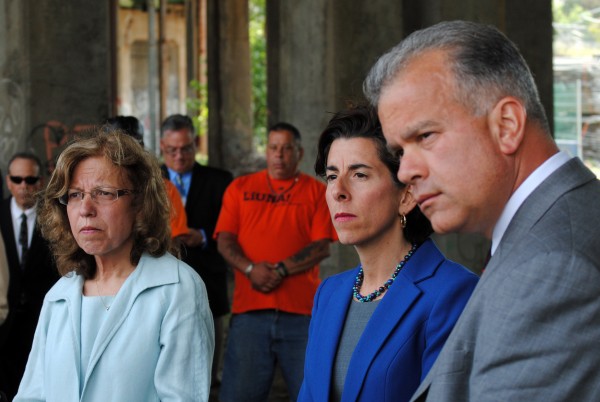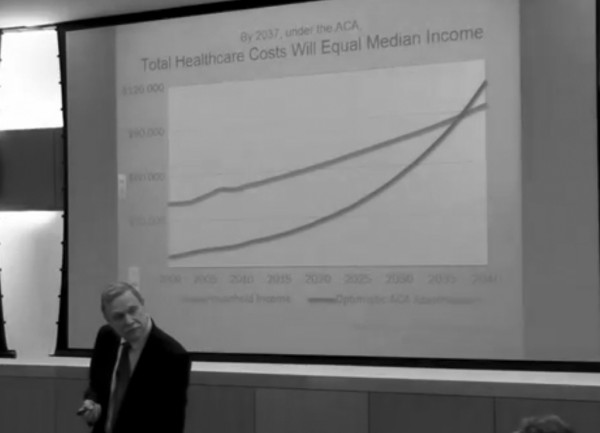 New Census data show that the percentage of uninsured Rhode Islanders was 5.7 percent in 2015, half the rate it was in 2013, the year before the Affordable Care Act (ACA) went into effect. In 2014, 7.4 percent were uninsured.
New Census data show that the percentage of uninsured Rhode Islanders was 5.7 percent in 2015, half the rate it was in 2013, the year before the Affordable Care Act (ACA) went into effect. In 2014, 7.4 percent were uninsured.
Two new avenues for affordable health insurance made available through the ACA have helped significant numbers of Rhode Islanders gain coverage. First, new Medicaid eligibility for adults (Medicaid expansion) allowed around 60,000 single adults with income marginally above the poverty line to have health insurance coverage.
Second, the new state exchange, HealthSourceRI, provided a pathway to coverage for another 35,000 Rhode Islanders who purchase private insurance. Almost 90 percent of enrollees, those with income below four times the poverty level, quality for federal tax credits to help pay their monthly premium. The majority of enrollees (60 percent) have income below two and half times the poverty level ($29,000) and also receive assistance paying for out of pocket costs including co-pays and deductibles. (Source: HealthSourceRI, Open Enrollment 2016)
According to the Rhode Island Annual Medicaid Expenditure Report for SFY 2015, the federal/state Medicaid program provides health insurance to one in four Rhode Islanders. In addition to the 60,000 newly eligible single adults, 150,000 children and families with lower income and 12,000 children with special health care needs have comprehensive insurance through Medicaid. Seniors (19,000) and people with disabilities (32,000) rely on Medicaid for the services they need to live safely in the community or in a facility when home-based care is not feasible.
 “Rhode Islanders should be proud that we are 7th in the nation for the percent of residents who have health insurance coverage”, said Linda Katz, Policy Director at the Economic Progress Institute. “With health insurance, people are more likely to keep up with yearly preventive care visits and people with chronic conditions can get the treatment they need to promote their well-being. Besides the obvious benefits for families and individuals, having a healthy work force is a good selling point for our state. Medicaid and coverage through HealthSourceRI are vital to ensuring that thousands of our residents can afford comprehensive health insurance.”
“Rhode Islanders should be proud that we are 7th in the nation for the percent of residents who have health insurance coverage”, said Linda Katz, Policy Director at the Economic Progress Institute. “With health insurance, people are more likely to keep up with yearly preventive care visits and people with chronic conditions can get the treatment they need to promote their well-being. Besides the obvious benefits for families and individuals, having a healthy work force is a good selling point for our state. Medicaid and coverage through HealthSourceRI are vital to ensuring that thousands of our residents can afford comprehensive health insurance.”
 In speaking out against a bill that would make sure no pregnant person could be denied medical coverage due to their pregnancy, a health insurance lawyer unintentionally made a great case for a national, single payer health program.
In speaking out against a bill that would make sure no pregnant person could be denied medical coverage due to their pregnancy, a health insurance lawyer unintentionally made a great case for a national, single payer health program.
Shawn Donahue is an attorney at Blue Cross & Blue Shield of Rhode Island and last Tuesday he spoke at the House Corporations Committee meeting to oppose a bill that would ensure “no pregnant applicant for medical insurance coverage would be denied coverage due to her pregnancy.”
I want to stress at the outset that Donahue seems like a decent man, and I sensed that he was somewhat uncomfortable speaking out against this bill.
“No one believes in the importance of pre-natal care more than Blue Cross,” said Donohue, “We’ve invested in it.”
That’s true. “Getting early and regular prenatal care is one of the most important things you can do for the health of both you and your baby,” says Blue Cross on its website. The site contains a wealth of information and advice on healthy pregnancies. But we don’t have to assume that Blue Cross is promoting neonatal care out of any sense of public service. Healthy pregnancies are cheaper for insurance companies. An insured baby, with proper neonatal care, is less likely to have expensive health problems going forward.
The importance of prenatal care is underscored by the health risks associated with not having such care.
“Women in the United States who do not receive prenatal care have an increased risk of experiencing a neonatal death… Lack of prenatal care is associated with a 40 percent increase in the risk of neonatal death overall…” says the Guttmacher Institute, citing a study, “Black women are more than three times as likely as white women not to receive prenatal care, and regardless of their prenatal care status, their infants are significantly more likely to die within their first 27 days of life than are infants born to white women.”
Other risks from not receiving adequate prenatal care include low birth weight for the infant, and pre-eclampsia, a form of organ damage, that affects the mother. From a human perspective, this is terrible and unnecessary. From the perspective of an insurance company, such health problems are expensive.
Yet, said Donohue, speaking for Blue Cross at the Rhode Island State House, “The only way insurance works is if you purchase it when you don’t need it so it’s there for you when you do. If you allow people a special enrollment period, whether they’re diabetics, cancer patients or pregnant people, they won’t buy it until they need it.”
The Affordable Care Act (ACA or Obamacare) mandates that Rhode Islanders buy private insurance on the state run health insurance exchange, HealthSourceRI. “If you’ve missed the open enrollment period,” said Donohue, “ you’ve broken the law and now you are penalized for that, and the penalties start to grow.”
Donahue is talking about financial penalties of course, but the real penalties from a societal point of view are dead babies, or babies and mothers with terrible health outcomes. Suddenly the financial penalty for not complying with the ACA mandate seems rather small and meaningless, doesn’t it? But more to the point, it’s exactly these negative health outcomes that Obamacare was supposed to address.
 “We don’t let people buy insurance on their way to the hospital in an ambulance,” said Donahue. I would say that having to worry about financial issues during a medical emergency is a major system failure, and further, these gaps in care for vulnerable Americans expose the weaknesses in today’s for-profit health insurance industry, of which Blue Cross & Blue Shield of Rhode Island is a big part.
“We don’t let people buy insurance on their way to the hospital in an ambulance,” said Donahue. I would say that having to worry about financial issues during a medical emergency is a major system failure, and further, these gaps in care for vulnerable Americans expose the weaknesses in today’s for-profit health insurance industry, of which Blue Cross & Blue Shield of Rhode Island is a big part.
According to Physicians for a National Health Program (PNHP), “Single-payer national health insurance, also known as ‘Medicare for all,’ is a system in which a single public or quasi-public agency organizes health care financing, but the delivery of care remains largely in private hands. Under a single-payer system, all residents of the U.S. would be covered for all medically necessary services, including doctor, hospital, preventive, long-term care, mental health, reproductive health care, dental, vision, prescription drug and medical supply costs.

“The program would be funded by the savings obtained from replacing today’s inefficient, profit-oriented, multiple insurance payers with a single streamlined, nonprofit, public payer, and by modest new taxes based on ability to pay. Premiums would disappear; 95 percent of all households would save money. Patients would no longer face financial barriers to care such as co-pays and deductibles, and would regain free choice of doctor and hospital. Doctors would regain autonomy over patient care.”
On the national scene Bernie Sanders has championed single payer, calling it Medicare for All. “Health care must be recognized as a right, not a privilege,” says Sanders, “Every man, woman and child in our country should be able to access the health care they need regardless of their income. The only long-term solution to America’s health care crisis is a single-payer national health care program.”
State Representative Aaron Regunberg has introduced, for the second time, a bill to bring the benefits of a single payer health insurance program to Rhode Island. His bill would “act would repeal the ‘Rhode Island Health Care Reform Act of 2004 – Health Insurance Oversight’ as well as the ‘Rhode Island Health Benefit Exchange,’ and would establish the Rhode Island comprehensive health insurance program.”
His bill deserves our support.
]]> A recent Gallup poll revealed that Rhode Island has the lowest uninsured rate in the country, at 2.7 percent, as well as one of five states that saw its uninsured rate decline by 10 points or more. But, how did that happen? Anya Wallack, director of HealthSourceRI, was able to provide some answers.
A recent Gallup poll revealed that Rhode Island has the lowest uninsured rate in the country, at 2.7 percent, as well as one of five states that saw its uninsured rate decline by 10 points or more. But, how did that happen? Anya Wallack, director of HealthSourceRI, was able to provide some answers.
“You come to HealthSource, and right there, you can very easily sign up for coverage regardless of your income,” she said. “We’ve developed an infrastructure that’s really designed for this unified approach.”
Wallack explained Rhode Island decided to create its own exchange because it presented “significant advantages, in terms of local control and customer service.” With a state based exchange, rather than a federal one, they could better tailor their services to the needs of Rhode Islanders.
HealthSourceRI uses what she called a “one door policy,” meaning that customers could come in and not only apply for health insurance, but check to see if they were eligible for Medicaid and other benefits. This is where much of the exchange’s success comes from, since this is a policy only a few states have adopted.
Wallack said that making customers jump through hoops only serves to make things more confusing, and they miss out on important information because of it. Right now, Wallack and her team are expanding their open door policy, and making it possible for customers to begin to apply for other assistance programs like TANF or SNAP.
“When we’re done building our system, you’ll be able to sign up for those with one stop shopping,” she said.
Wallack added that there are a number of ways that customers can use this one stop shopping, that all services are provided online, over the phone, or in person. Face-to-face assistance is also provided right in the community health centers, so customers can sign up for insurance right in their hometown. HealthSourceRI also has enrollment events during the open enrollment period, which is from Nov. 1 to the end of January each year. During open enrollment, a customer can renew, reenroll, or sign up for coverage, or just change their plan. There are two other types of enrollments as well- special enrollment and Medicaid coverage. Special enrollment occurs when a customer’s circumstances change throughout the year and they need to change their plan, and Medicaid coverage happens throughout the year to see if a customer is eligible for Medicaid.
“We try to find any avenue where we can come into contact with people who may be looking for coverage,” Wallack said concerning their community accessibility.
This level of accessibility has worked for the exchange, proved not only by the Gallup poll but the hard numbers that HealthSource has collected so far for this year. In 2015, they have enrolled 32,554 individuals as of July 31. Most people who enrolled were age 55 and over, sitting at 29 percent. 53 percent of enrollees were female, while 47 percent were male. More than half of the enrollees – 59 percent – were eligible for financial assistance in the form of an advanced premium tax credit and cost-sharing reductions. These numbers show an upward trend from last year, with over 7,000 more enrollees. Small businesses are signing up through HealthSource as well, with 542 employers enrolled in 2015, compared to the 381 from 2014.
The Gallup poll found that states that set up their own exchange and expanded Medicaid saw the biggest drop in their uninsured rate, something that the Ocean State has been doing since day one. According to Wallack, as long as they continue with this, Rhode Island can serve as a model for other states and their healthcare exchanges, especially as HealthSourceRI moves forward. Within the next month, HealthSource will be releasing its own survey, which will give more accurate results than the Gallup one, because it will only look at Rhode Island. But, the national survey still shows a trend, and that Rhode Island is headed in the right direction.
“What I take from this, is that those policy decisions, as well as our decisions to take a coordinated approach, was successful for us,” Wallack said.
HealthSource’s next step is to find those last remaining uninsured individuals, and understand why they’re uninsured, as well as work with employers to make sure that they are able to retain coverage. Now, their job is to help control healthcare cost growth, provide support for small business, and provide affordable choices for everyone, especially that last 2.7 percent.
]]>
Language on abortion nestled into the 2016 Rhode Island State Budget dealing with HealthSource RI may have far reaching consequences for workers whose employers may want to claim a religious exemption from covering the procedure. As reported on RI Future yesterday, Governor Gina Raimondo inserted an 11th hour amendment into the budget that goes far beyond what Federal law mandates as regards abortion access under the Affordable Care Act. Several local organizations have now spoken out about the Governor’s actions.
James Rhodes, director of public policy & government relations at Planned Parenthood Southern New England, said, in a statement,
Planned Parenthood was surprised to see these proposals in the Governor’s budget when it was unveiled last week, and we were not consulted about the new policies contained in this article. Additionally, since there was never a hearing on this language, we have not been able to get clear guidance on the intent of these policies.
“Specifically, there is a fundamental question on which the budget article the House Finance Committee passed on Tuesday night is silent: ‘How does a small employer, whether a religious organization or not, claim a religious exemption from covering abortion?’ Do they have a form to fill out to submit to the Office of Health Insurance Commissioner to declare their objection in order to get a new plan variation from an insurer? Is there any requirement to notify insured employees that their insurance does not cover this service, which is standard coverage in the small group market?
“Fundamentally, Planned Parenthood believes that employers should not be making health decisions around abortion coverage or contraception for their employees. Rhode Island has an opportunity to protect employees by including specific language that would require, at a minimum, notification, to the Insurance Commissioner and employees, that the insurance an employer is offering does not include the full range of reproductive health options, including abortion.”
Steve Brown, executive director of the RI ACLU, also expressed concerns, saying in a statement,
We are extremely disappointed in the Governor’s introduction of polarizing abortion language into the health exchange budget article. Protecting access to abortion is an essential component of comprehensive health coverage, but Article 18 undermines that access.
“It is worth emphasizing that the federal health care law already imposes significant restrictions on abortion access through health care exchanges. The additional burdens that passage of this budget article could impose, particularly on unwitting employees, is deeply troubling.”
As a candidate, Raimondo was happy to accept campaign money from the pro-choice PAC Emily’s List and to accept the endorsement of Planned Parenthood Votes!. Raimondo once said that “women are ‘smart enough’ to make their own health care decisions without interference from government or their employer,” according to a ProJo piece by Katherine Gregg.
Laws that allow employers to make unilateral decisions about a worker’s reproductive healthcare options cut against candidate Raimondo’s claim.
Sam Bell, executive director of the Progressive Democrats of Rhode Island, said in a statement,
]]>For folks who criticized me during the campaign season for saying that Raimondo would be less than fully committed to protecting a woman’s right to choose, this is what I was talking about.
“Restricting insurance coverage of reproductive healthcare is one of the most dangerous ways to erode a woman’s right to choose. The fact of the matter is that wealthier women will always have access to abortions. They can go to another state and pay for the procedure out of pocket. They may have the procedure delayed. They may face institutionalized shaming. But with enough money, they will always have access, no matter how restrictive Rhode Island’s laws get.
“That’s why this new policy is so damaging. It will force lower-income women to choose between carrying a child they don’t want and financial ruin.”

The 2016 RI State Budget, approved by House Finance late Tuesday evening, included language on abortion coverage in its section on HealthSource RI funding that goes far beyond what is required under the Affordable Care Act (ACA). This part of the budget, inserted at the request of Governor Gina Raimondo on May 29, replaced article 28 of her original budget which the General Assembly changed to Article 18 in its final version.
The part that pertains to abortion coverage reads:
(3) Any health plan that delivers a benefit plan on the exchange that covers abortion services, as defined in 45 CFR section 156.280(d)(1), shall comply with segregation of funding requirements, as well as an annual assurance statement to the Office of the Health Insurance Commissioner, in accordance with 45 C.F.R. sections 156.280(e)(3) and (5).
(4) At least one plan variation for individual market plan designs offered on the exchange at each level of coverage, as defined by section 1302(d)(1) of the federal act, at which the carrier is offering a plan or plans, shall exclude coverage for abortion services as defined in 45 CFR section 156.280(d)(1). If the health plan proposes different rates for such plan variations, each listed plan design shall include the associated rate.
(5) Health plans that offer a plan variation that excludes coverage for abortion services as defined in 45 CFR section 156.280(d)(1) for a religious exception variation in the small group market shall treat such a plan as a separate plan offering with a corresponding rate.
The ACA requires, by 2017, that a Multi-State Plan not covering most abortions be offered on every state-based health exchange. The language above mandates that every insurer operating on HealthSource RI offer multiple plans that do not cover abortion. The budget in its current form does not require that insurers offer plans to cover abortion, so any insurer not interested in offering nearly identical plans may decide to drop such coverage altogether.
The federal mandate that requires at least one plan that does not cover abortion should more than adequately cover those with a well-founded religious objection to abortion so that they can find a health plan to cover their needs.
I have made two requests to the Governor’s office, asking for clarification of the amendment’s intent and the reasoning behind the language, but these have gone unanswered.
Gina Raimondo has always maintained that she is staunchly pro-choice. That she would be behind some of the most audacious anti-choice legislation in decades, and that the language should be inserted into the budget without any public debate or comment may come as a surprise to her supporters.
After receiving the endorsement from the Planned Parenthood Votes! Rhode Island PAC, Raimondo said, ‘The Catholic Church has a clear position and I have a clear position…I am clearly pro-choice.”
But Raimondo’s Budget Article 28, by mandating that every insurer offer multiple plans that do not cover abortion, undermines the accepted medical and legal standard that abortion is a safe and legal procedure. Just as individuals do not get a choice about whether their health insurance covers blood transfusions, erectile dysfunction, or vaccinations, abortion coverage should be treated as an essential health benefit, not an outlier “variation” for which every insurance plan must make an exception.
]]>
Dr. Oliver Fein, representing Physicians for a National Health Program (PNHP-RI), gave a talk Monday night to a class of second year med students at Brown University’s Warren Alpert Medical School in Providence. The talk was open to the public, but due to the snow storm attendance was low. That’s too bad, because Dr. Fein’s talk was an informative and eye opening examination of both the history of public healthcare in the United States and the possibility of transforming the current system beyond Obamacare and towards a system of truly universal coverage, what supporters call, “Medicare for All.”
In the video, Dr. Fein covers the history of healthcare in the United States, starting with President Truman’s suggestion that some sort of universal health care program might be a good idea, right up to President Obama’s successful passage of the Affordable Care Act. (For Dr. Fein’s summary, go here.)
At the 17 minute 30 second mark Fein leaves history behind and explicates the ideas behind a single payer healthcare model, or what he calls an “Improved Medicare for All.” Such a system would build upon and expand Medicare to the entire population, improve and expand coverage in the areas of preventive services, dental care and long term care, eliminate deductibles and co-payments, expand drug coverage (eliminating the “donut hole”) and redesign physician reimbursement.
Several points leapt out at me during Dr. Fein’s presentation. Using data from 2009, Fein reported that 62% of personal bankruptcies were due to medical expenses and 75% of those who declared bankruptcy had health insurance. For too many people, it seems, health insurance did nothing to prevent financial disaster.
Fein also reported that overhead costs in administering Medicare run about 3.1%. Commercial healthcare runs near 20%. This means that 17 cents (or more) of every health care dollar is wasted on administrative costs or corporate profits under our current system of private insurance. This is money that could be going towards patient care.
Fein concluded that a system based on private insurance programs will not lead to universal coverage and will not create affordable coverage, whereas a Medicare for All system can lead to universal comprehensive coverage without costing more money.
“What will happen if we don’t do this?” asked Fein in conclusion, “By [the year] 2038 a person’s entire household income will… have to pay for health insurance. A condition that’s not compatible with life.”
Rhode Island
Gerald Friedman, a PhD and Professor of Economics at the University of Massachusetts at Amherst released a 41 page report earlier this month on the possibility of adopting a single payer healthcare system here in Rhode Island. Friedman maintains that a single payer plan would result in significant savings for most Rhode Islanders and only increase healthcare spending for those making over $466,667 a year.
 Representative Aaron Regunberg, from the East Side’s District 4, is planning to introduce legislation for a statewide single payer healthcare plan this session. Model legislation from the PNHP is available here.
Representative Aaron Regunberg, from the East Side’s District 4, is planning to introduce legislation for a statewide single payer healthcare plan this session. Model legislation from the PNHP is available here.
More information about the Rhode Island branch of the PNHP can be found at their website.
]]> It’s 7:00 in the evening. You, a Rhode Island resident, are at the mall in Attleboro. You’re out to dinner in Seekonk. You’re on vacation on the Cape. Suddenly, your teen-age child collapses, unconscious.
It’s 7:00 in the evening. You, a Rhode Island resident, are at the mall in Attleboro. You’re out to dinner in Seekonk. You’re on vacation on the Cape. Suddenly, your teen-age child collapses, unconscious.
What do you do?
Do you call an ambulance? The child is unresponsive. His eyes are rolled back in their sockets. He appears to be breathing shallowly. I repeat: what do you do?
Do you call 911? Or do you try to assess whether the situation is dangerous, whether you should try to take him to the hospital yourself, or whether you should just take him home and call a doctor in the morning? Which do you choose? And no, you’re not a doctor, and no, you don’t even play one on TV.
Some would suggest we should choose the latter route. Or, if we decide to go the ambulance route, we should call several providers, trying to see who has the best price, then see if we can haggle it downward a bit. Or maybe ask if they’ll take a chicken as a discount. In the meantime, your child is still unconscious. But being the hyper-rational homo economicus that you are, you pull out the copy of the local yellow pages you always carry in case of situations like this, or you use your smart phone to search the web for the local services, and then you coolly work the market and see what sort of price you can get.
OK, you’ve done that, only to find that the best deal you can get is $2,999.99. Now, you have insurance, but it will only cover 80% of the charge after the deductible is satisfied, and only if the situation is deemed an emergency. Well, your kid is unconscious; does that, in and of itself constitute an emergency? Are you a doctor? No. Do you have a clue whether it’s truly an emergency? No. And, 20% of that ambulance bill still comes to $599.98, assuming that everything goes as planned, that your deductible has been met, and the insurance will actually cover the 80%.
So what do you do? Does this change your behavior?
And remember: you get your insurance through your employer, so it’s not like you can negotiate your own deal with the insurance company. And that’s a good thing.
And what if your checkbook balance is somewhere south of $800 at the moment, and you still have to make the car payment? That $599 will take a pretty good bite out of that. If you’re making RI median, your next check will come in somewhere between $1200 & $1300 (depending on deductions, etc). And remember, this is just the ambulance. If you do go to the ER, there will be a plethora of other charges: for tests, x-rays, CAT scans/MRIs, physician services, and so on.
One thing that’s important to remember is that something like an ambulance, or an ER, has to be staffed and prepared at all times. An ER will probably use its facilities on a fairly constant basis, so there isn’t a lot of down time. That is not necessarily true for an ambulance. Maintaining and staffing that ambulance 24/7 costs money. Now, if you depend on paying for the ambulance by billing the people who use it, a significant part of the bill will be for maintaining that service when it’s not in use. So that means the price has to be a lot higher than just the cost of that particular run. A lot higher.
Now, we could subsidize the ambulance service as a common good; but that means taxes have to go up to pay for that. Since people who decide the level of taxes probably don’t have to worry about a couple of grand if they need an ambulance, they won’t see the point of having to pay taxes all the time to support an ambulance service that they may never need. Let the people who need it pay for it. Sounds ever-so-sensible. So the poor schnooks who do have to worry about having to pay a couple of grand for an ambulance will pay for all that down time out of their pocket.
But that’s fair, isn’t it? If you make the bad choice and get sick, well, hey, you made that choice. No one put a gun to your head and made your kid pass lose consciousness.
So you go that route. You kid goes to the ER, gets half-a-dozen tests, and, thank the Lord, appears to be fine. So you all go about your business for another month or so. And then the bills (note the plural: bills) start to come in. The first is for the ER, and that’s around $4,500. But your insurance works as planned, so your only responsible for $900 (which is 20% of the total). Then there are the bills for the MRI, the blood tests, physician services, yadda yadda yadda. These clock in at another $1,500, so you only have to pay $300. So we’re over a grand already.
Then the ambulance bill comes. Oh, that was out of network. So sorry! You’re not covered!
So now you’re faced with the whole $2,999.99.
And the whole episode cost something like $9000 (Well, technically, $8,999.99, using the figures I’ve presented).
Now, how would you have acted when your kid collapsed? Would you have rationally balanced a potential bill of about $4,300 against some unknown ailment with unknowable consequences? Would you have considered the hole this was going to blow in your budget and said, “well, I have no idea what’s wrong with my kid, but maybe it’s not a big deal?” Or do you go the ambulance/ER route with no clue what it’s going to cost?
Would you have done anything differently?
]]> A common rhetorical technique within the Tea Party right is to wrap their personal opinions in those of the Founders, lending an air of gravitas and implying that those revolutionaries would, in modern days, hold opinions identical to their own.
A common rhetorical technique within the Tea Party right is to wrap their personal opinions in those of the Founders, lending an air of gravitas and implying that those revolutionaries would, in modern days, hold opinions identical to their own.
There’s certainly much there to choose from. The Founders were nearly entirely of a class of wealthy landowners, at times more concerned with the protection of property rights than with the protection of what we’d today consider representative democracy. But often the quotes they select reflect only their lack of understanding of what was actually being written, a case of “I found it on the Internets so it must be true.” The latest example comes from local fringe-right darling and GoLocal “Mindsetter,” Travis Rowley. Writing about what he calls the complete disaster of Obamacare, Travis picks this gem:
It will be of little avail to the people if the laws are so voluminous that they cannot be read, or so incoherent that they cannot be understood. – James Madison
Good one, eh? But what was Madison actually talking about when he wrote that? The full quote might surprise you:
The internal effects of a mutable policy are still more calamitous. It poisons the blessing of liberty itself. It will be of little avail to the people, that the laws are made by men of their own choice, if the laws be so voluminous that they cannot be read, or so incoherent that they cannot be understood; if they be repealed or revised before they are promulgated, or undergo such incessant changes that no man, who knows what the law is to-day, can guess what it will be to-morrow. Law is defined to be a rule of action; but how can that be a rule, which is little known, and less fixed? — The Federalist No. 62
In fact, Madison was warning of the “mischievous effects of a mutable government” and the dangers of frequent and complex changes to federal law. Yes, what a calamitous thing it would be if the Affordable Care Act were repealed or revised before it is promulgated! It’s hardly worth reading the rest of an opinion piece that begins with a quote skewering the central premise. But wait a minute, Russ, was Madison saying we should allow bad laws to stay on the books? If fact, that’s exactly what he was saying with regard to such “great improvement[s] or laudable enterprise[s]” that “[require] the auspices of a steady system of national policy.”
The mutability in the public councils arising from a rapid succession of new members, however qualified they may be, points out, in the strongest manner, the necessity of some stable institution in the government. Every new election in the States is found to change one half of the representatives. From this change of men must proceed a change of opinions; and from a change of opinions, a change of measures. But a continual change even of good measures is inconsistent with every rule of prudence and every prospect of success. The remark is verified in private life, and becomes more just, as well as more important, in national transactions.
Agree or disagree with the law, but there’s little question that changes or repeal would have chaotic effect on the industry. Indeed, as Madison concludes, “What prudent merchant will hazard his fortunes in any new branch of commerce when he knows not but that his plans may be rendered unlawful before they can be executed?” That ship has sailed, so at least for now Teapublicans like Rowley should learn to live with it.
]]>